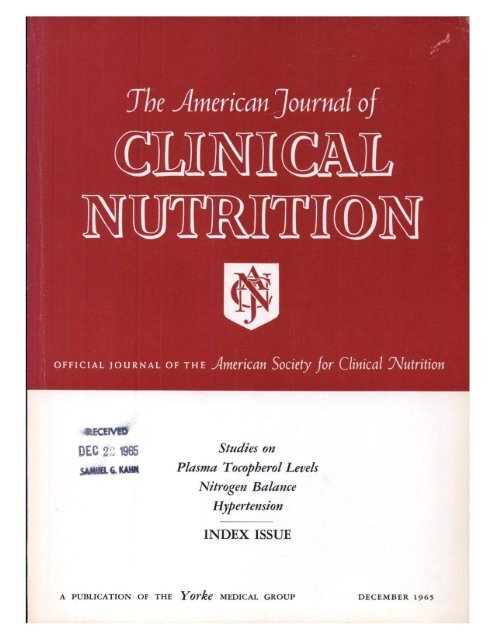Industry study sponsorship and conflicts of interest on the effect of unprocessed red meat on cardiovascular disease risk: a systematic review of clinical trials
IF 6.5
1区 医学
Q1 NUTRITION & DIETETICS
引用次数: 0
Abstract
Background
Experimental research on the link between unprocessed red meat and cardiovascular disease risk is inconsistent and may differ according to the financial interests of red meat industry sponsors.
Objectives
This study aims to assess whether studies sponsorship or conflicts of interest with the red meat industry are associated with reported outcomes of unprocessed red meat consumption effect on risk factors for cardiovascular disease.
Methods
PubMed, Cochrane Library, and Scopus were searched from the inception of the databases to 3 March 2024. Studies were classified as “Red meat industry-related” if any of the authors declared affiliation or financial disclosure indicating a link to the red meat industry; or “Red Meat industry-independent.” Reported outcomes were independently graded as favorable, neutral, or unfavorable. Studies were also categorized by type of control group. The quality of evidence for each outcome was evaluated using the Grading of Recommendations Assessment, Development and Evaluation approach.
Results
A total of 44 studies were included, of which 66% had a link to the red meat industry. All independent studies reported either unfavorable (73.3%) or neutral (26.7%) cardiovascular outcomes when consuming unprocessed red meat. Conversely, all studies related to the red meat industry reported either favorable (20.7%) or neutral (79.3%) cardiovascular outcomes for red meat intake. A total of 69.6% of trials (16 of 23) showed a neutral effect of unprocessed red meat compared with other animal proteins, whereas 70% (7 of 10) reported an unfavorable effect compared with plant proteins. Studies with conflicts of interest were nearly 4 times more likely to report “Favorable/Neutral” outcomes compared with independent studies (odds ratio 3.75, 95% confidence interval: 1.62, 8.67).
Conclusions
Our findings highlight that using animal protein as a comparator in industry-funded studies, with quality of evidence rated as very low to low, may underestimate the cardiovascular benefits of reducing red meat intake. Most studies without conflicts of interest with the red meat industry suggested an unfavorable effect of unprocessed red meat consumption on risk factors for cardiovascular disease.
Trial registration number
This trial for systematic reviews or meta-analyses was registered at PROSPERO as CRD42024525197 (https://www.crd.york.ac.uk/prospero/display_record.php?RecordID=525197).
未加工红肉对心血管疾病风险影响的行业研究赞助和利益冲突:临床试验的系统回顾。
背景:未经加工的红肉与心血管疾病风险之间的联系的实验研究是不一致的,并且可能根据红肉行业赞助商的经济利益而有所不同。目的:本研究旨在评估研究赞助或与红肉行业的利益冲突是否与未加工红肉消费对心血管疾病危险因素影响的报告结果相关。方法:检索PubMed、Cochrane Library和Scopus数据库自建库至2024年3月3日。如果任何作者声明与红肉行业有关联或财务披露表明与红肉行业有联系,则研究被归类为“与红肉行业相关”;或“独立于红肉行业”。报告的结果被独立地分为有利、中性或不利。研究还按对照组的类型进行了分类。每个结果的证据质量采用建议分级评估、发展和评估方法进行评估。结果:共纳入44项研究,其中66%与红肉行业有关。所有独立研究都报告了食用未加工红肉的不良心血管结果(73.3%)或中性心血管结果(26.7%)。相反,所有与红肉行业相关的研究报告显示,摄入红肉对心血管的影响要么有利(20.7%),要么中性(79.3%)。总共69.6%的试验(23项中的16项)显示,与其他动物蛋白相比,未加工红肉的效果中性,而70%的试验(10项中的7项)报告了与植物蛋白相比的不利影响。与独立研究相比,存在利益冲突的研究报告“有利/中性”结果的可能性几乎是独立研究的4倍(优势比3.75,95%可信区间:1.62,8.67)。结论:我们的研究结果强调,在行业资助的研究中,使用动物蛋白作为比较物,证据质量被评为非常低到低,可能低估了减少红肉摄入对心血管的益处。大多数与红肉行业没有利益冲突的研究表明,未加工的红肉消费对心血管疾病的危险因素有不利影响。试验注册号:该系统评价或荟萃分析试验在PROSPERO注册为CRD42024525197 (https://www.crd.york.ac.uk/prospero/display_record.php?RecordID=525197)。
本文章由计算机程序翻译,如有差异,请以英文原文为准。
求助全文
约1分钟内获得全文
求助全文
来源期刊
CiteScore
12.40
自引率
4.20%
发文量
332
审稿时长
38 days
期刊介绍:
American Journal of Clinical Nutrition is recognized as the most highly rated peer-reviewed, primary research journal in nutrition and dietetics.It focuses on publishing the latest research on various topics in nutrition, including but not limited to obesity, vitamins and minerals, nutrition and disease, and energy metabolism.
Purpose:
The purpose of AJCN is to:
Publish original research studies relevant to human and clinical nutrition.
Consider well-controlled clinical studies describing scientific mechanisms, efficacy, and safety of dietary interventions in the context of disease prevention or health benefits.
Encourage public health and epidemiologic studies relevant to human nutrition.
Promote innovative investigations of nutritional questions employing epigenetic, genomic, proteomic, and metabolomic approaches.
Include solicited editorials, book reviews, solicited or unsolicited review articles, invited controversy position papers, and letters to the Editor related to prior AJCN articles.
Peer Review Process:
All submitted material with scientific content undergoes peer review by the Editors or their designees before acceptance for publication.

 求助内容:
求助内容: 应助结果提醒方式:
应助结果提醒方式:


